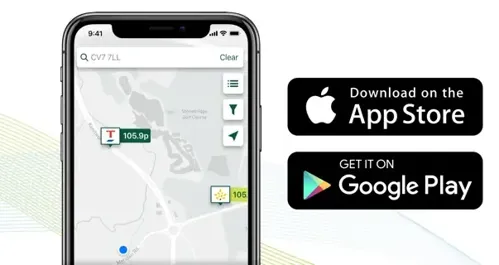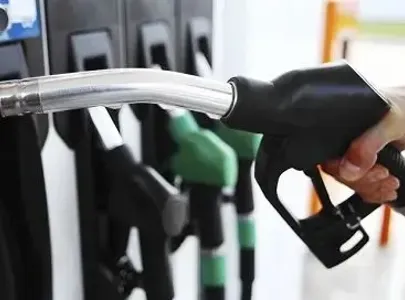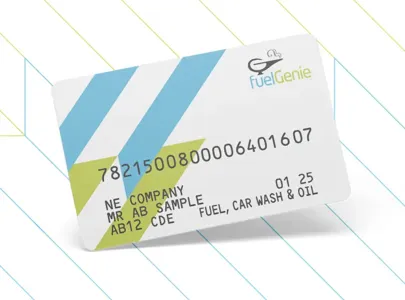What are the benefits of using a fuel card?
They streamline petrol and diesel management for businesses by offering a wide range of benefits such as cost tracking, fuel discounts, fraud protection and simplified reporting. They also help in controlling outgoings by providing detailed insights into usage patterns and fuel expenses to ensure efficient fleet operations.
Fuel Card Guide Overview
Fuel cards have many advantages for all types of business, both small and large, across all industry sectors. Any firm can benefit from a fuel card, including businesses that use fuel directly as a service offering such as delivery or logistics companies or businesses where fuel spend is small cost associated with commercial operations.
Understanding how they work and the best one for your business sector and size can be confusing. To help companies make the best choice we’ve put together, Fuel Cards: A Complete Guide. The guide covers everything you need to know in topics listed below – select the link to skip to that section of the guide.

How to Use the fuelGenie Petrol Prices App
The fuelGenie app helps drivers easily locate the best pump price. We've created a guide below which takes you through the main features and how it works.

Business Fuel Cards
This addition to your fleet can be a huge benefit to a range of businesses. This section of the guide looks specifically at how different types of business can benefit.
Businesses included in this section include:
- Fuel cards for farmers
- Fuel cards for taxi drivers
- Fuel cards for driving instructors
- Fuel cards for self employed
- Fuel cards for small fleets
- Fuel cards for charities
- Fuel cards for builders
- Fuel cards for small businesses
- Fuel cards for carers
- Fuel cards for electricians
- Fuel cards for plumbers
- Fuel cards for housing associations
How Do Fuel Cards Work?
Business fuel cards streamline the administration of fuel usage while also saving businesses money on the fuel itself by encouraging good driver behaviour and better visibility of company fuel expenses. Using a fuel card is really simple. Drivers pay for the fuel using the card instead of cash or debit/credit card. The amount spent on fuel then gets recorded on the fuel card account and charged back to the company, within the credit period specified. When linked with telematics, fuel cards can also split out business and personal use with ease, providing even more control and visibility for businesses.
Get more information on How Fuel Cards Work and How to Use Your Fuel Card.
Compare UK Fuel Cards
Comparing them to other methods to pay for business fuel is crucial in selecting the best fuel card for the most effective fleet management. Compared to the pay and reclaim method, they reduce the amount of time spent on collecting receipts and admin time spent reimbursing employees. This section of the guide also compares fuelGenie fuel cards against other fuel cards on the market.
Fuel Card Types
There are a number of types of cards available on the market which differ based on price, the UK fuel stations they can be used at for refuelling and the fuel card services they offer. The best fuel card provider for your business will depend on your location, fleet size and business requirements. Some of the most popular fuel card types are offered by major brands, so be sure to research and compare their offerings before making a decision.
Some fuel cards charge fees for having the service and others are completely free. fuelGenie has two solutions, fuelGenie and fuelGenie+. The fuelGenie fuel card is completely free and can be used at Tesco, Morrisons and Sainsbury's petrol stations. fuelGenie+ fuel card has a small monthly fee but offers additional petrol station coverage, it can be used at all fuelGenie locations, plus most Shell petrol stations. Drivers can use the fuelGenie app to locate their nearest forecourt. Both fuelGenie fuel cards have no hidden fees or surcharges.
Some of the most common fleet and HGV fuel card charges to look out for when making a choice include:
- Annual card charge
- Network service fee
- Replacement card
- Convenience charge
- Change of details
- Invoicing
- Direct debit admin
- Risk-based fee
For more information read our article on fuel cards with no fees.
Read more in the Compare Fuel Cards section of the guide.
Fuel Cards, admin and VAT
Tax can be a complex subject when it comes to businesses and what is and what isn’t taxable. To make things easier we have dedicated a whole section of the guide to Fuel Cards and Tax. This discusses the tax implications of a fuel card and how to avoid these complexities. Stopping employees using business fuel cards for personal use is the easiest way to avoid having to pay taxable benefits to employees. If this isn't possible, our guide explains the tax your business will need to pay and how this can be calculated.
Fuel cards can also be beneficial in terms of VAT reclaim, fuelGenie features an online account management system which collates all of the transaction into one single, monthly HMRC approved invoice. This makes managing VAT reclaim for business fuel easy.
Take a look at our Fuel Cards and Tax section of the guide for more information.
Your fleet size and the areas your business needs to cover will become a key factor in the selection of the most suitable fuel card for your business needs. Most fuel cards can only be used at fuel sites where they are accepted, so it is important to check the coverage of a fuel card before signing up.
The fuelGenie offering features two options, fuelGenie and fuelGenie+. Both are completely free and can be used at more than 1,370 Tesco, Morrisons and Sainsbury’s petrol stations while fuelGenie+ can be used at 2,200 petrol stations as well as everywhere the fuelGenie fuel card can be used – plus most Shell petrol stations. Drivers can use the fuelGenie app to find their nearest participating station and the best fuel prices to ensure maximum cost savings.
For more information on network coverage read our article on choosing a fleet fuel card.

HGV Fuel Management: make the miles matter
Reducing money spent on fuel by switching fuel card supplier is one of the easiest ways to reduce fuel expenses. But there are other simple ways businesses can cut costs and manage outlay more effectively. This section of the guide looks at how both can be achieved.
Advising drivers on the most fuel-efficient way to drive a vehicle can save hundreds of pounds on business fuel costs over the course of a year. Managing other business expenses effectively by following the recommendations in our article How to Manage Small Business Expenses can also help to manage cash flow and cut unnecessary costs.
Other costs associated with the running and maintenance of business vehicles must be carefully managed. This includes the purchase and replacement of vehicles and vehicle running costs. Getting a good deal on the cost of vehicles and their maintenance contracts can have a significant impact on business finances.
Other travel costs including train tickets and hotel stays can also mount up. Take a look at the Business Fuel Management section of the guide for more information and peace of mind on how to save money and manage business fuel data.
Fuel Cards and Employees
Fleet managers and employees at different levels of the business may have questions around the use of fuel cards and how they impact on their role and business operations. This section of the guide is dedicated to answering all the questions you might have around the range of fuel cards and the impact on employees and the business.
Questions include:
Should a fuel card be in the handbook?
Do fuel cards impact on health and safety?
Do they impact on pensions?
Read more from this section of the guide: Fuel Cards and Employees

Choosing a fuel card that is suitable for your business can be a complex decision, our guide aims to make this as simple as possible. If you have decided fuelGenie is the right choice for your business, you can apply online using our simple form.